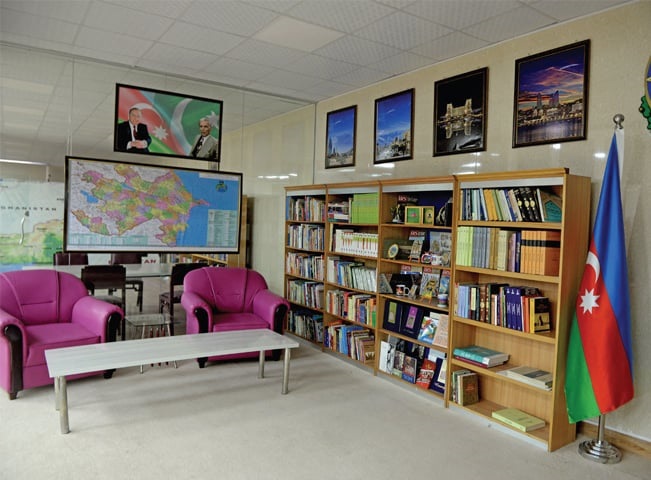Written by: Tanveer Ali
Posted on: May 22, 2025 | 
National Library Islamabad has a huge collection of books.
Ray Bradbury’s saying, “Without libraries what have we? We have no past and no future,” rightfully encapsulates the importance of libraries for any society. Reading is the foundation of a thinking and informed community that promotes inquiry, curiosity and empathy amongst readers. In a country like Pakistan, battered by educational and literacy gaps, easy access to libraries can fill in the knowledge void and democratize access to learning materials, thereby paving the way for a more informed and inclusive society.
In Pakistan, especially in Islamabad, public libraries are unable to tackle the growing needs of a knowledge-based society. There are only six community libraries managed by the Department of Public Libraries in various sectors (I-8, I-10, G-7, G-8, G-11, and F-11), in addition to the Aiwan-e-Quaid Library inside F-9 Park and the National Library of Pakistan on Constitution Avenue, G-5, behind the PM Secretariat. These libraries are not sufficient to meet the growing needs of the population, which is rising exponentially due to the huge influx of people for education, health, careers and other purposes. There are only 11 public libraries in Islamabad and 187 in Pakistan, approximately 0.81 libraries per million people in Pakistan and 4.8 libraries per million people in Islamabad. While Islamabad fares comparatively well, especially when compared to the rest of the country, it still falls well short of the International Federation of Library Associations and Institutions (IFLA)’s recommendation of at least one public library for every 3,000 people. Pakistan’s population is rising dramatically, but the number of libraries has remained stagnant; upkeep and maintenance are other issues altogether. the way for a more informed and inclusive society.

The Azerbaijan Corner at the National Library was set up by the government of Azerbaijan to promote their literature.
Think tanks and public and private universities in Islamabad have libraries of their own, apart from the ones mentioned earlier, but they are not open to the general public, so their reach is minimal.
The role of public libraries in Islamabad, and more widely in Pakistan, continues to lie in conventional functions: books, a place for reading, and a quiet space for study. However, many libraries have not kept abreast of the times. Using information from various sources, including academic reports containing statistics, it is possible to get a worrying picture. Though libraries are symbolically significant, their real facilities, book collections and accessibility have continuously deteriorated. Based on the analytical study on public libraries in Islamabad, titled Community Libraries in the Capital of Pakistan: Current Status, Issues, and Perspectives, it is reported that 87% of these libraries do not subscribe to research journals, while more than 70% have no digital resources. A large portion has outdated collections: about 40.5% have fewer than 3,000 books. This lack of updated material greatly hinders libraries when it comes to serving scholars, students and professionals. the way for a more informed and inclusive society.
Facilities, too, are lacking. Basic amenities like clean drinking water, adequate washrooms, working air conditioning and internet access are either very poor or simply not available. A report in Dawn in 2009 had already warned of a decaying library infrastructure in Islamabad, and the condition has barely changed since. Users complain of insufficient seating, poor lighting, and unhelpful staff. Libraries tend to operate with shortfalls, outdated cataloguing systems, and staff who are either under-qualified or not trained in digital library management.
The university libraries in Islamabad present a slightly better picture but are equally plagued by their own set of problems. As evidenced by a 2024 study, university libraries are now more inclined to include user education and digital learning tools. They conduct orientation sessions, workshops and also offer e-resources, but the digital divide remains a major barrier. Not every student has access to fast internet or suitable digital devices to take advantage of these services. Issues such as lack of funding, insufficient staff and poor technological infrastructure remain constant in university libraries. the way for a more informed and inclusive society.
To elevate these libraries, multiple approaches are required. First, there is a need for major investment from both the public and private sectors to modernize library infrastructure. This includes not only physical renovations but also digital upgrades, faster internet, procurement of electronic databases and digitization of existing collections. Partnerships between libraries, universities, NGOs and international library networks should also be fostered to expand access to current collections and knowledge resources. the way for a more informed and inclusive society.
Second, staffing issues must be addressed. Most public libraries are not run by professionals. Hiring competent librarians and ensuring ongoing training are crucial for rejuvenating services. The integration of IT experts and knowledge managers can also strengthen the technical capacity of libraries. Third, efforts should be made to involve the community through awareness campaigns, book fairs and reading contests. Field librarians should be digitized and their numbers increased. Moreover, libraries should aim to become vibrant community hubs rather than passive warehouses of books.
To enhance funding, library services should be incorporated into urban planning and educational reform policies. Donor agencies and international organizations can be encouraged to finance library projects. Crowdfunding campaigns and public-private partnerships could also serve as viable sources of income. the way for a more informed and inclusive society.
Finally, public libraries in Pakistan, and especially in Islamabad, still have the potential to serve as critical educational and cultural institutions. They are, however, beset by underfunding, outdated equipment, and poor infrastructure. Without a systematic initiative to modernize them, make them more community-oriented and ensure long-term support, libraries will be reduced to relics from a bygone era rather than engines of a better future.
You may also like: